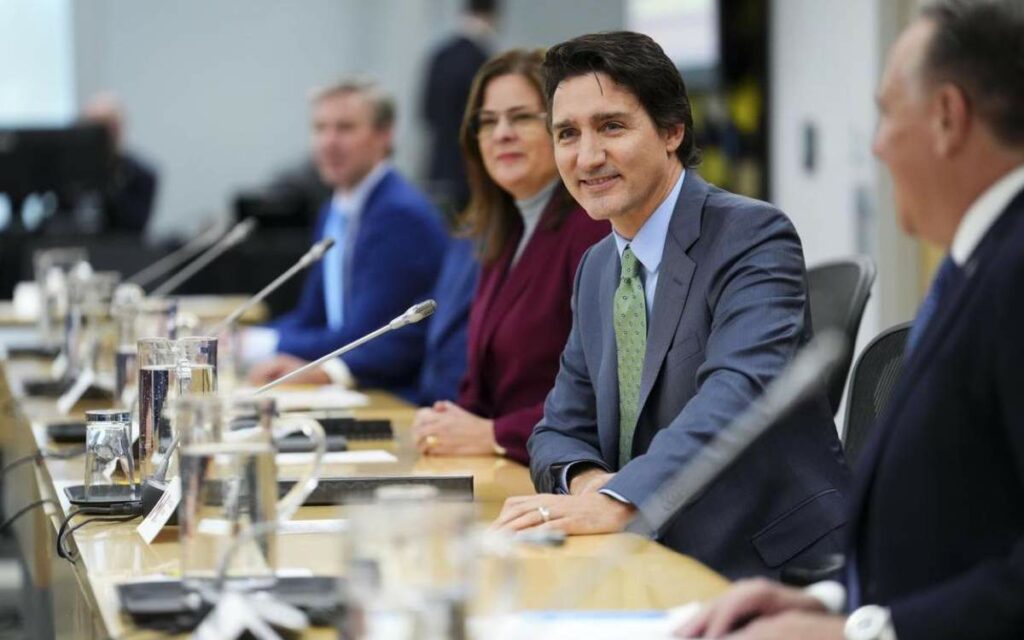
The Prime Minister and his provincial counterparts met in the nation’s capital on Tuesday to discuss a new funding deal for healthcare. While a number of the premiers complained that the deal didn’t go far enough, there was no outright rejection by any of the provinces on the terms of the proposal. Photo credit: The Canadian Press/Sean Kilpatrick
Premiers gathered in Ottawa earlier this week to meet with the Prime Minister and hash out the final details of a new healthcare agreement. While there was no official signing ceremony on the agenda, it became clear by the end of the meeting on Tuesday that a deal is imminent and set to become official around the time of the release of the federal budget.
When you look at the proposed dollar figures associated with the potential deal, it’s no surprise that the biggest controversy to come out of Tuesday’s coverage was Premier Danielle Smith’s uncomfortable handshake with the Prime Minister. The federal government has committed to spending $196 billion over the next ten years, of which $46 billion is brand new money. The total sum is enough to give the average Canadian sticker shock, without any real understanding of how the funding will flow through a system that has been under constant strain since the onset of the COVID-19 pandemic.
While a number of the premiers complained that the deal didn’t go far enough in terms of new funding commitments, there was no outright rejection by any of the provinces on the terms of the proposal.
Politically, Trudeau couldn’t have asked for a better outcome. He has once again managed to spend his way out of a problem, while putting the onus on the provinces to come up with the “innovation” needed to radically transform a broken healthcare system. While the Prime Minister can update his talking points to reflect the fact that he fulfilled his end of the deal, any perceived lack of action will be laid squarely at the feet of the individual provinces.
Even Conservative Leader Pierre Poilievre didn’t have much to say in the way of criticism, stating that “obviously a future Conservative government led by myself will keep in place these additional sums and honour the commitments made.”
Poilievre has few options at his disposal when it comes to his stance on the issue of healthcare transfers, both in the short and long-term. To appear in opposition to increasing healthcare transfers at this juncture would appear tone deaf to the current issues plaguing the system, and would be political suicide for a party hoping to pick up seats in the suburbs of Toronto and Vancouver in the next election.
On the flip side, committing to increasing transfer spending as per the wishes of the premiers would be challenging for a government in waiting looking to balance the budget. When push comes to shove, status quo is the lane the Conservatives are stuck in.
The reality is that money alone is a band-aid solution and isn’t going to fix the problems plaguing Canada’s healthcare system. Trudeau likely knows this, and yet has managed to all but remove the political target on his back under the premise that he has tackled an issue that Canadians care deeply about. This is the kind of crafty maneuvering that has gotten Trudeau re-elected time and again and serves as a reminder that to

Josie Sabatino is a Senior Consultant at Summa Strategies, focused on providing strategic insight and helping clients meet their objectives in an ever changing and complex political and regulatory environment. Prior to joining Summa, Josie spent nearly a decade in political communications and most recently served as the Director of Communications to the Hon. Erin O’Toole, former Leader of the Official Opposition.




















